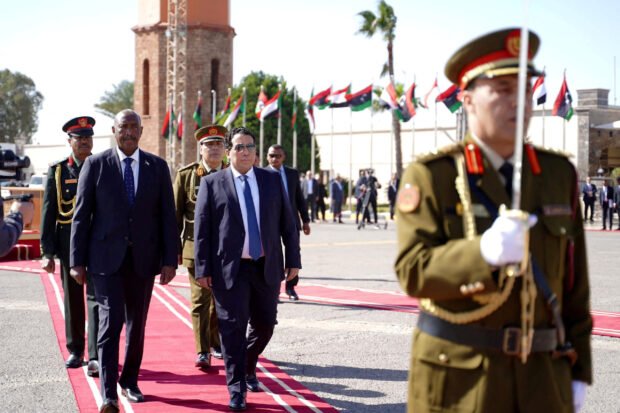Libyan Leadership Unites to Establish Joint Government for Election Oversight
Representatives from Libya’s conflicting administrations have committed to establishing a cohesive government, marking a significant step towards national unity. The meeting, held in Cairo on March 10 and facilitated by the Arab League Secretary-General, brought together key figures: the Head of the country’s Presidential Council, the Speaker of the eastern-based House of Representatives, and the Head of the western-based High Council of State.
Ahmed Aboul Gheit, the Arab League Secretary-General, outlined the critical agreements reached during the gathering. First and foremost, there was a collective emphasis on upholding Libya’s sovereignty, independence, and the unity of its territory. The participants rejected any foreign intervention that might negatively impact the country’s political process. Second, a commitment was made to address the existing political agreement and its subsequent components. A technical committee will be established within a specified timeframe to examine necessary amendments to broaden the consensus base. This committee will build on the work carried out by the 6+6 committee, a collaborative effort between the House of Representatives and the High Council of State responsible for preparing electoral laws. The aim is to resolve lingering disagreements by existing legislation.
Central to the discussions was the acknowledgment of the urgency to form a unified government tasked with overseeing the electoral process and providing essential services to the Libyan population. The current political crisis in the country was exacerbated by the failure to conduct elections on December 24, 2021. Prime Minister Abdul Hamid Dbeibah, leading a transitional government in Tripoli, refused to step down, further intensifying the discord. In response, the parliament based in the eastern part of the country appointed a rival prime minister to govern that region.
The commitment to forming a unified government and addressing electoral processes reflects a collective effort to steer Libya away from the current crisis and towards a more stable and unified future. The technical committee’s role in expanding consensus and resolving disagreements demonstrates a commitment to inclusivity and adherence to existing legislative frameworks. As Libya navigates these crucial steps, the international community will be closely watching, hopeful for positive developments contributing to lasting stability in the region.


















